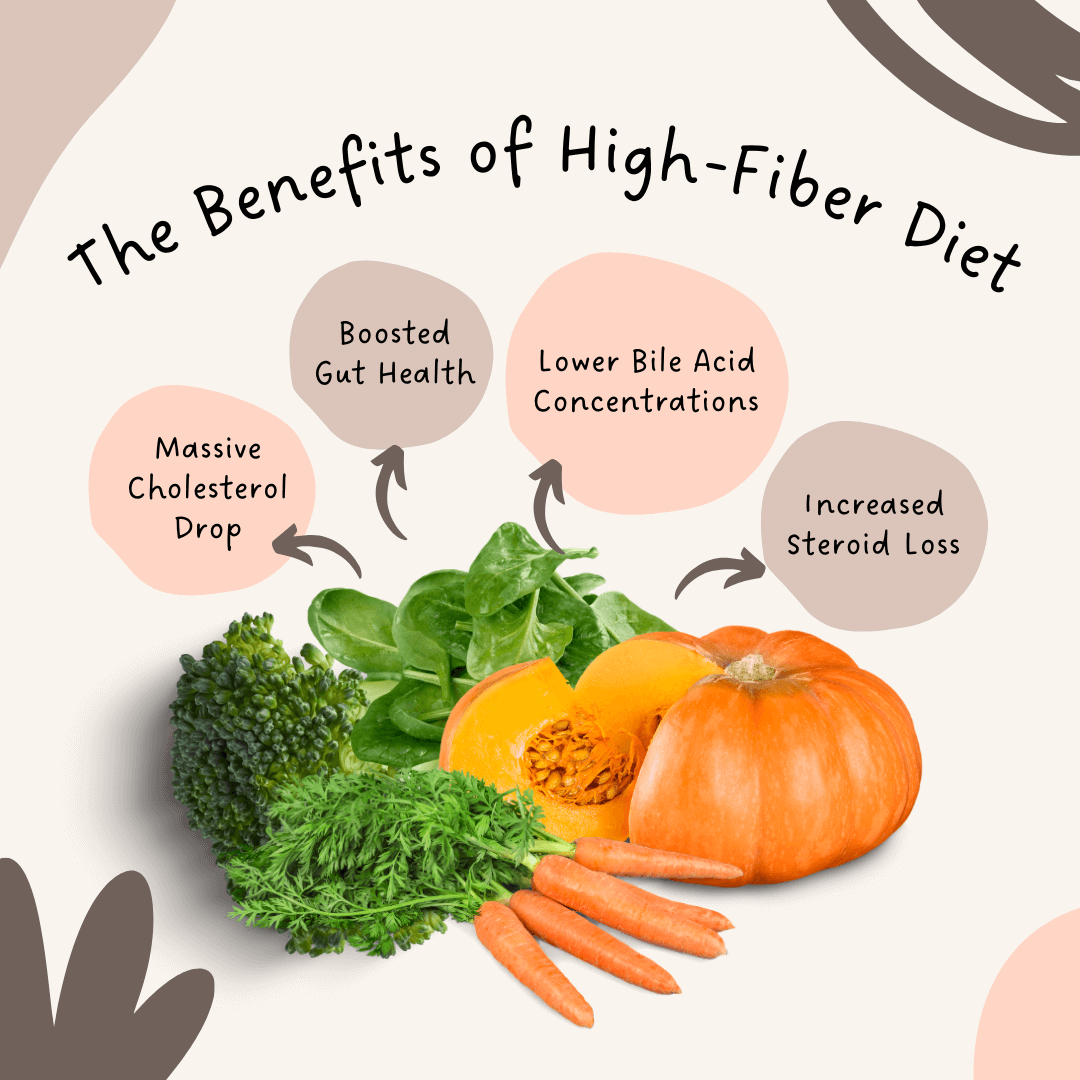
When it comes to diet, most of us know that fiber is good for us. But just how good? A study from 2001 might surprise you with its findings on the power of a very high-fiber diet, particularly one rich in vegetables, fruits, and nuts. This research looked into how such a diet can impact your cholesterol levels and gut health, and the results were nothing short of impressive (Jenkins DJ et.al., 2001).
The Diets: What Did They Eat?
The study involved ten healthy volunteers who each followed three different diets for two weeks. Here’s a quick breakdown:
-
High-Vegetable, Fruit, and Nut Diet: This diet was packed with fiber—55 grams per 1,000 calories, to be exact. The fiber came primarily from vegetables, fruits, and nuts.
-
Starch-Based Diet: Think of this as a diet similar to what early agricultural societies ate, featuring lots of cereals and legumes.
-
Low-Fat Diet: This was more of a modern therapeutic diet, designed to be low in fat while maintaining the participants' weight.
Each diet provided around 2,577 calories per day, ensuring that the participants' weight remained stable throughout the study.
What the Study Found: Key Takeaways
Now, let’s dive into the juicy details of what this study discovered:
-
Massive Cholesterol Drop: The high-fiber vegetable diet led to the most significant drop in low-density lipoprotein (LDL) cholesterol, often dubbed the "bad" cholesterol. How big was the drop? A whopping 33%! That’s a much larger reduction compared to the other diets in the study.
-
Boosted Gut Health: The high-fiber diet didn’t just lower cholesterol—it also had a dramatic impact on gut health. It increased fecal bulk and the output of bile acids and short-chain fatty acids. Why does this matter? It means your body is efficiently getting rid of waste and excess cholesterol, which is crucial for long-term health.
-
Lower Bile Acid Concentrations: Even though the output of bile acids increased, the concentration of bile acids in the stool was the lowest on the high-fiber diet. This is important because lower bile acid concentrations in the gut are linked to a reduced risk of colon cancer.
-
Fast Results: Here’s the kicker—the benefits didn’t take long to kick in. The study showed that significant reductions in cholesterol were seen in just one week on the high-fiber diet. Talk about quick wins!
-
Increased Steroid Loss: The high-fiber diet also led to increased urinary mevalonic acid, indicating that the body was losing more steroids through feces. This isn’t just a minor detail—it's a sign that the body is clearing out potentially harmful substances, further contributing to the health benefits.
Why This Matters: The Health Implications
So, what does all this mean for you? The findings from this 2001 study suggest that a diet very high in fiber, particularly from vegetables, fruits, and nuts, can play a crucial role in reducing risk factors for cardiovascular disease. Lower LDL cholesterol and better gut health are clear indicators of this.
But it’s not just about heart health. The reduction in bile acid concentration in the gut suggests a protective effect against colon cancer, too. This study is a powerful reminder that the foods we eat have a direct impact on our health, and sometimes, simple changes like increasing fiber intake can lead to significant benefits.
What You Can Do Today
If you’re looking to improve your cholesterol levels, boost your gut health, and potentially reduce your risk of serious diseases, consider upping your intake of fiber-rich vegetables, fruits, and nuts. The evidence from this study is clear: a very high-fiber diet can make a real difference, and the benefits start showing up faster than you might think. So, why not give it a try? Your body will thank you.
Reference
https://pubmed.ncbi.nlm.nih.gov/11288049/
Jenkins DJ, Kendall CW, Popovich DG, Vidgen E, Mehling CC, Vuksan V, Ransom TP, Rao AV, Rosenberg-Zand R, Tariq N, Corey P, Jones PJ, Raeini M, Story JA, Furumoto EJ, Illingworth DR, Pappu AS, Connelly PW. Effect of a very-high-fiber vegetable, fruit, and nut diet on serum lipids and colonic function. Metabolism. 2001 Apr;50(4):494-503.









